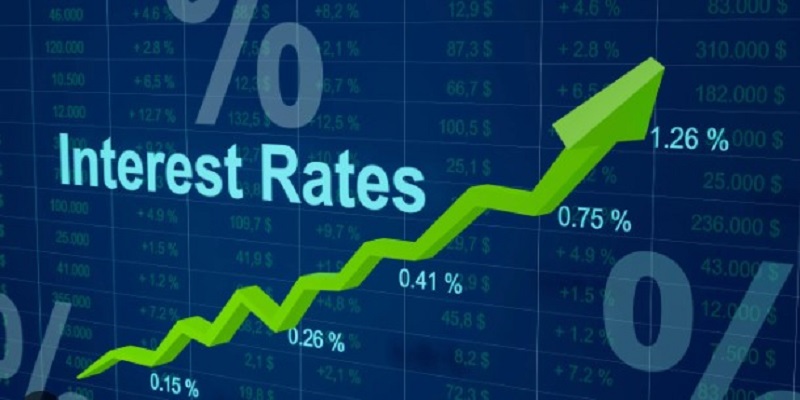Everything you Need to Know About Personal Loans Interest Rates
Oct 07, 2023 By Susan Kelly
More and more people are now trying to look for personal loans. This is because personal loans have lower interest rates, allowing people to fulfill their needs without paying a hefty interest. Personal loans have many benefits, and the average rates here are also very low compared to using credit cards.
If you are thinking about getting personal loans, you must know about the average interest rate and all the pros and cons of personal loans. This article will help you understand everything about individual loan interest rates.
What is a Personal Loan?

Before looking at the rates of personal loans, you must understand what a personal loan is. A personal loan is basically borrowing an amount of money for a variety of different reasons. People often take personal loans to pay off their medical bills, do renovations around the house, and plan their weddings and a few other things.
Just like any other loan, personal loans also need to be repaid over the course of time. It is also seen that the majority of the lenders take the money back interest. However, the best thing here is that the interest rate of personal loans is very low compared to other available loans. Another difference in personal loans is that they are a lump sum amount and do not work like a personal line of credit.
What is the Personal Loan Interest Rate?

Now, coming to the central part, what is the personal loan interest rate? Personal loans are basically closed-end credit. This means they have set monthly payments that are divided over a period of time. The interest rates in these personal loans are expressed as a percentage of the amount that is borrowed.
The interest rate can differ for everyone because it is the nominal annual percentage rate (APR). In most cases, the rates are based on monthly periodic rates, which is done by dividing the APR by 12. The APR then divides the additional amount that you will need to pay on the borrowed amount over the time period.
How Does Personal Loans Interest Rate Work?

When you apply for a personal loan, the bank must borrow the money from their customer's deposit money or other banks. The interest rate you get depends on the bank's cost to borrow the money. Also, the rate depends on the inherited risk, which is the chance of getting the money repaid.
When figuring out the personal loan interest rate, there are four main factors that contribute to it.
Borrowers Credit Worthiness:
When getting a personal loan, your credit rating of credit score will be checked. If you have a high credit score, then there are a lot of chances that you will be getting a better interest rate. This is because there will be a lower risk of default, and the bank will know you can pay them back.
Another thing that is checked before giving a loan is the employment status and the income the person makes. This allows the lender to know whether you will be able to pay back the loan or not.
People who don't have good credit scores or suitable employment and have a history of not paying the loans tend to get higher interest rates. This is because the trust level is not good, and the risk of not getting paid back is also higher.
Length of the Loan:
The duration of a loan significantly impacts the interest rates you receive. Typically, lenders profit more from long-term loans, resulting in lower interest rates. Conversely, short-term loans often come with higher interest rates. If you repay the loan faster than its designated term, you may face penalties. Therefore, understanding how loan length affects interest rates is crucial for making informed borrowing decisions, ensuring you secure favorable terms and avoid unnecessary fees or penalties by adhering to the loan's specified duration.
The Cost of Borrowing:
When considering the cost of borrowing, it's essential to note that personal loan interest rates can be influenced by the federal funds rate. Banks typically receive this rate, and it subsequently affects the interest rate offered to borrowers. Consequently, if the federal funds rate rises, banks may extend higher interest rates to borrowers. Understanding this dynamic is crucial as it highlights the interconnectedness of economic factors with your borrowing costs, underscoring the importance of staying informed about prevailing interest rates when seeking loans from financial institutions.
Secured or Unsecured Loans:
The nature of your loan, whether secured or unsecured, plays a pivotal role in determining your interest rate. Secured loans, backed by collateral or a co-signer, often come with lower interest rates due to reduced risk for lenders. In contrast, unsecured loans, lacking such security measures, typically carry higher interest rates as they pose greater financial risk to lenders. Hence, understanding the distinction between secured and unsecured loans is crucial, as it empowers borrowers to make informed decisions that align with their financial circumstances while optimizing their loan terms and interest rates.
Conclusion:
Personal loans are getting more common. People are trying to fulfill their needs by taking different loans. Among the other loans, personal loans are known to have the least amount of interest rate. We hope this article was helpful in understanding how the personal loan interest rate works and what can make the rates higher.





